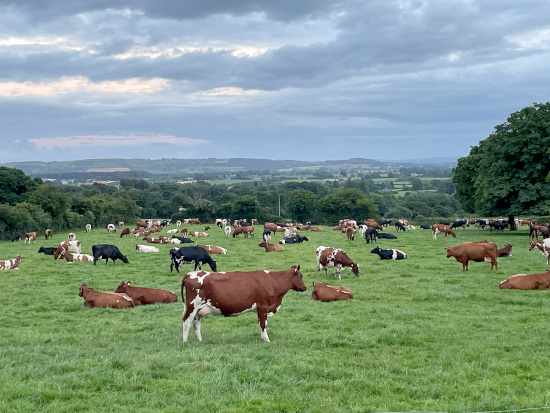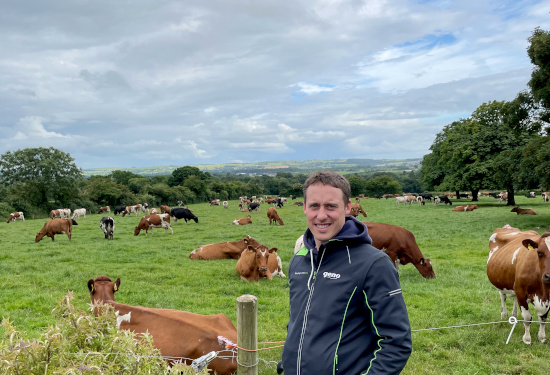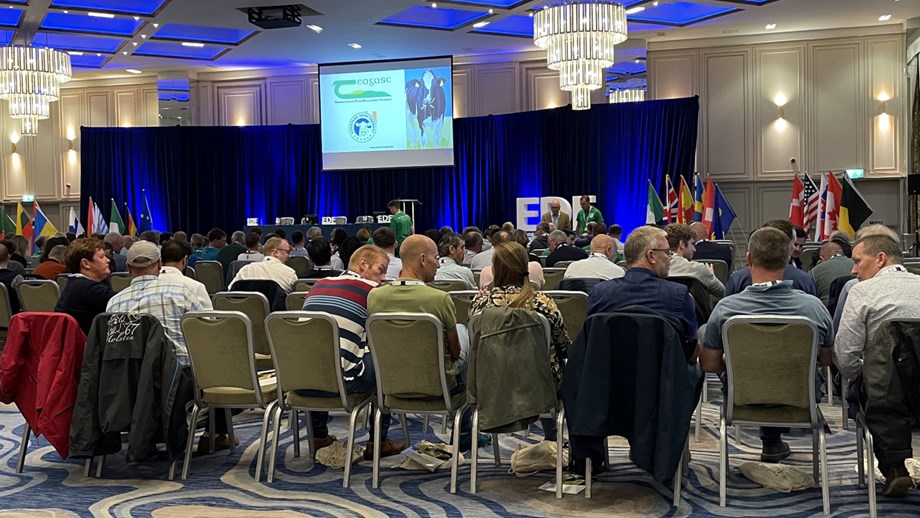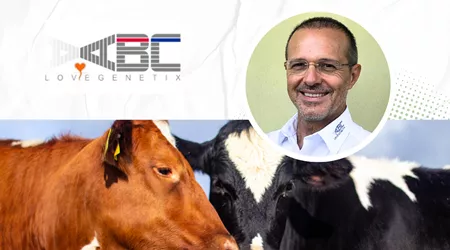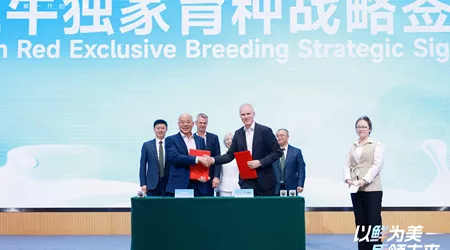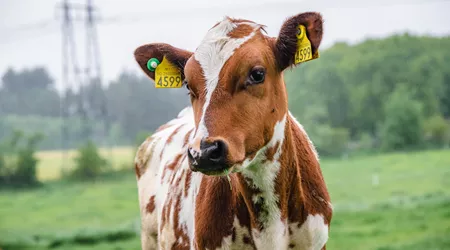Considering the growing discussion around sustainability in the agriculture sector, this year's theme of “Sustainable Dairying” was unequivocally conscripted. Sustainable dairying though is more than just a theme for the hosting country but is also a big focus for many dairy industry players around the world including Geno.
Read about the 2022 EDF Conference here
The 2022 Conference
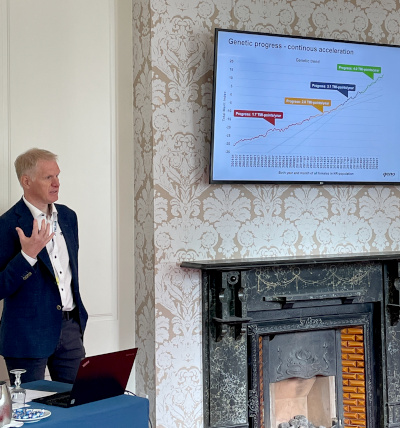
Designed to inspire and be inspired, the 3-day event included plenary sessions with guest speakers, a visit to EDF members’ farms, and enough time for socializing with all the participants. The whole organization was excellent, and we had the opportunity to host a workshop presenting Norwegian Red by Geno’s Chief Technology and Innovation Officer, Havard Melbo Tajet, sharing new insights on Geno’s future ambitions for sustainable breeding. We had a great chance to talk about our breeding goal, genetic progress achieved by Norwegian Red and updated status of R&D projects including preliminary results from the methane emissions in Norwegian Red cows and bulls.
A big part of the program was covered by Irish prominent figures sharing useful insight about the dairy industry in Ireland, its development in recent years, status, and outlook. Prof. Laurence Shalloo from Teagasc (the Agriculture and Food Development Authority), CEO of Ornua John Jordan, Head of Dairy at Bord Bia David Kennedy, and CEO of Dairygold Conor Galvin - just to mention a few - were some of the speakers.
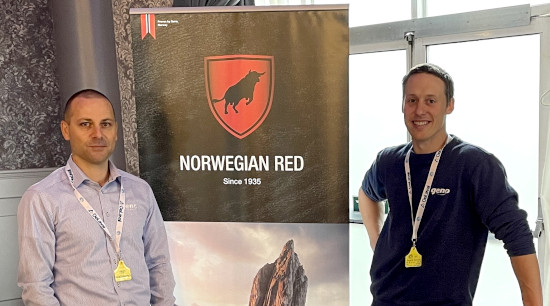
Key takeaway - Dairy industry in Ireland
One of the reasons for Geno to start collaborating with EDF and sponsor the event is because the growing interest in Norwegian Red genetics in Ireland. Over the years, Geno has seen some steady growth in the dairy industry and dairy cattle genetics: Ireland is a progressive market offering many significant possibilities and growth for the Norwegian Red genetics. With its recognized reputation for excellent fertility and health status, great grazing capacity, high milk solids output, robustness and medium framed cows, Norwegian Red genetics is a great fit for Irish dairy farmers. “When you bred Norwegian Red crossbreds, you know they will profitably last for many lactations” is what Irish dairy farmers tell us.
The country accounts for 6,2% of EU milk deliveries (2021) and exports dairy products for 50,1% of its milk deliveries (2021).
It has been one of the few countries in Europe with the strongest growth after the end of the milk quota regime in 2015. The number of cows increased by 30% (1,550,000 in 2021) and milk production by 63% in the period 2012-2021.
For reference, in terms of milk output increase in the same period, Belgium ranks 2nd with a growth of 29%, Poland 3rd with a growth of 28%, and then Italy which increased by 25%. Germany and France, the #1 and #2 countries in the EU for milk output, increased by 7% and decreased by -1% respectively.
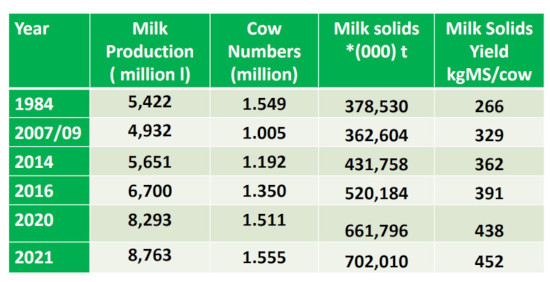
Norwegian Red genetics in Ireland
Geno has been active in the Irish market for years and was also a part of an important trial conducted by Moorepark with the results presented in 2012. It showed an increased profit for Irish dairy farmers by using Norwegian Red genetics crossed with Holstein Friesian cows, thanks to increased health, fertility, and calving ease, and complemented with keeping production at the same level.
Norwegian Red sales have continuously shown a steady increase in recent years, with still many opportunities to explore and rooms for improvement to understand the market better.
"Working together with our trusted exclusive distributor in Ireland, Dovea Genetics – a leading player AI breeding company – we believe that with the right strategies in place, we will meet our ambitions, to be the among the preferred dairy cattle genetics in the country" says Diego Galli, EMEA Regional Sales Manager at Geno. "Norwegian Red is unique genetics that greatly match the needs of Irish dairy farmers."
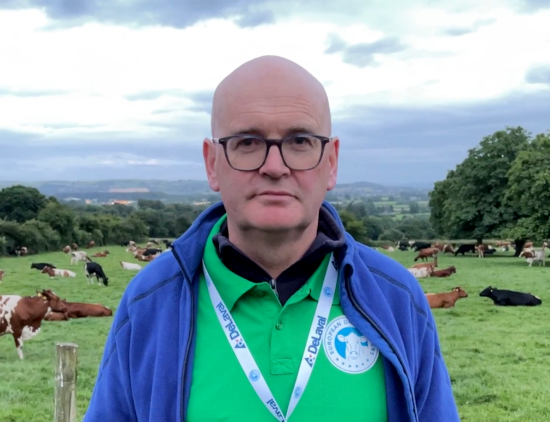
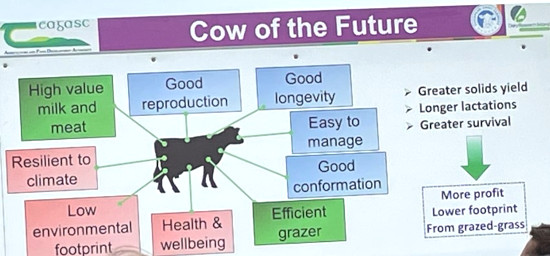
Norwegian Red is well placed fitting many of the traits of the "future cow" Moorepark research center has identified and therefore we believe our genetics can be beneficial to the Irish dairy farmers to reach their goals quicker than using other dairy breeds.
Even if the future of the dairy industry seems bright, there are some challenges that could threaten Ireland. As in other European countries, the topic of how much dairy is impacting the climate is first on the list of the government agenda. In these months there are ongoing discussions about considering the implementation of a voluntary cow reduction scheme and even if it is too early to get conclusions, we met farmers at the Conference that see this as a major challenge for the future of their operations.
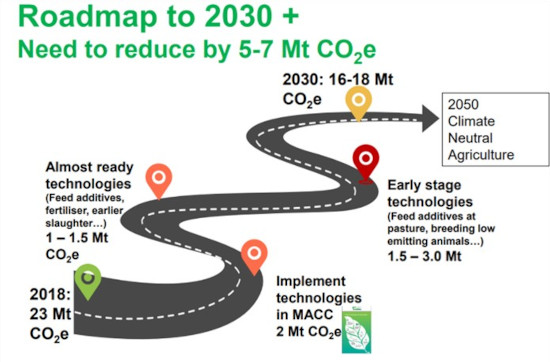
EDF Farm visits highlights
During the Conference we also visited EDF members’ farms in the Cork area, and it was nice to see most of them using Norwegian Red genetics.
Clonnoe Farm – Shane Fitzgerald
Cows in milk: 450
The herd is made of crossbred cows with Holstein Friesian, Norwegian Red, and Jersey genetics.
The ideal cow type for Shane has high fertility, high milk solids, low maintenance and is easy care. Shane took the farm over to his parents in 2008 and since then it was steadily developed, and the herd expanded. The farm is on a pasture-based spring block calving system with cows grazing as much as possible. The focus is on compact calving using good fertility.
Silage is produced for periods of no or little grass growth. 95% of the necessary fieldwork is outsourced.
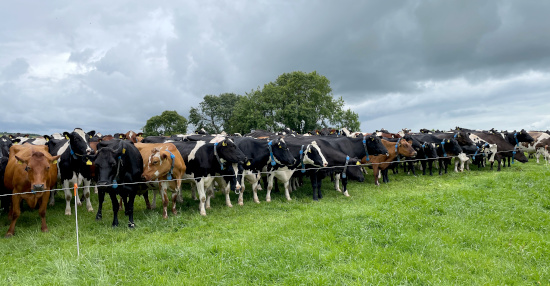
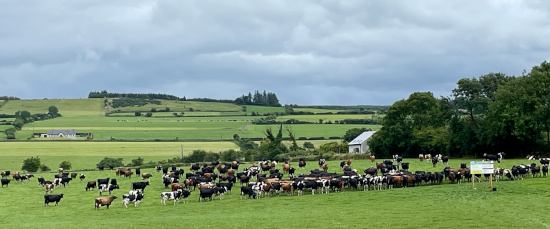
Dunne Farm
Cows in milk: 410
The herd is made of pure Norwegian Red cows.
Originally the herd was made of pure Holstein Friesian cows and over the years was completely switched to Norwegian Red doing "absorption crossing." Tom Dunne has been exclusively breeding with Norwegian Red genetics for the past 14 years.
The farm is run by the Dunne brothers and their sons. The 5th generation is now working on this farm which was purchased in 1875.
The farm has doubled in size in the last 10 yrs. A large investment in buildings and milk equipment has taken place, sufficient for 500 cows.
Focus is on grazing: the farm is all grass with 115 ha on the grazing platform and a spring calving herd system. The cows are calved to grass, housed in the first week in November, and dried off in early January. The plan is to produce high milk solids per ha at the lowest cost possible.
Grass silage is produced for winter feeding: 100 ha are cut four times a year. The farm staff does the mowing, tedding, raking, and fertilizer spreading while other work is done by the contractor.
